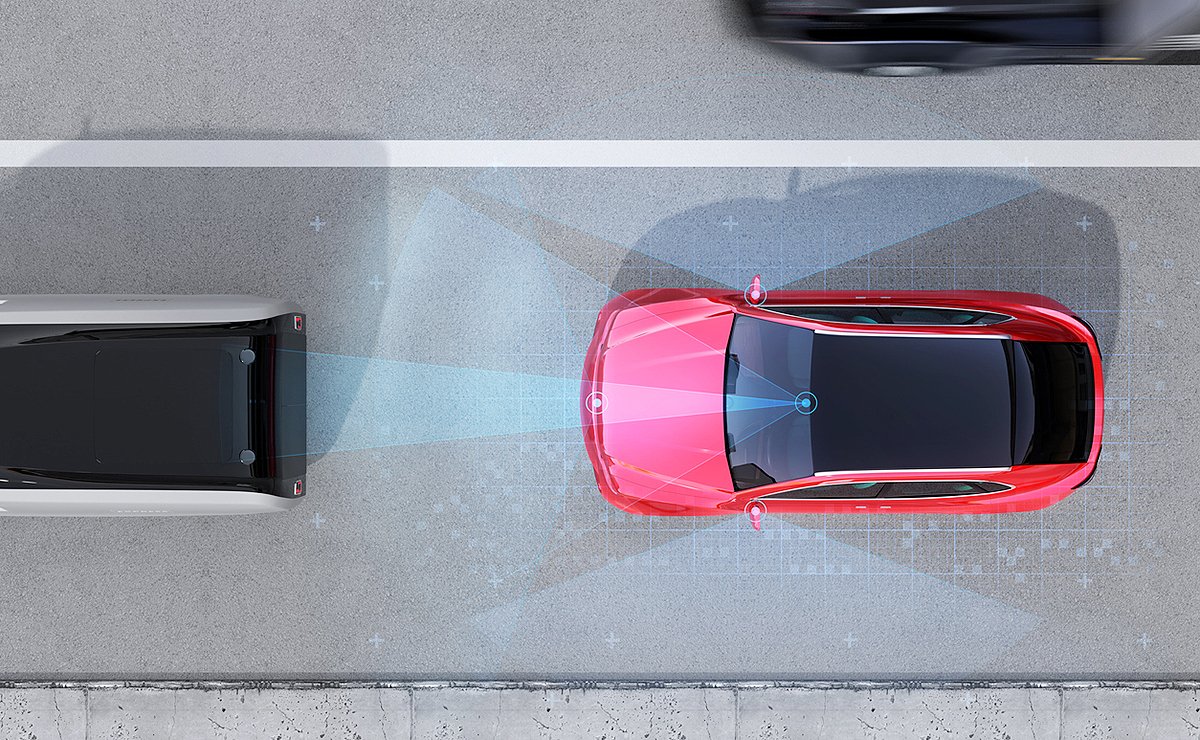| A push to clear up confusing auto tech terminology |

Understanding the difference between a driver-assist feature and a self-driving system is a life-or-death matter.
Unfortunately, the terminology used to describe them has devolved into a morass of marketing jargon that often exaggerates capabilities or blurs the line between the two.
Efforts are underway to improve that language. This week, a group of safety organizations put forth a set of common definitions that aims to cut through the clutter and, among other items, better define the differences between collision warnings and collision interventions.
The definitions are not intended to override the marketing strategies of individual automakers, the group says, but instead to standardize key functions of driver-assist systems.
“This is critical to ensure that drivers are aware these systems are designed to assist, not replace, an engaged driver,” said the group, composed of members from AAA, Consumer Reports, J.D. Power and the National Safety Council and endorsed by SAE International.
Meanwhile, a German engineer has coined a new word that marks a welcome addition to the industry’s collective vocabulary.
In an academic paper put forth this week, Liza Dixon writes that language that exaggerates the performance and dilutes the limitations of driver-assist systems amounts to an “autonowashing” that inflates consumer expectations. In the worst cases, the confusion can have deadly consequences.
Crashes stemming from this automation complacency hang a “dark cloud over the technology,” Dixon writes, “increasing customer wariness about the reliability of vehicle automation in a general sense. In the long term, this may hinder acceptance.”
Establishing trust through accurate language is a linchpin to achieving the safety benefits promised by these technologies. These efforts to improve terms – and cast those that don’t adhere as “autonowashed” – are tangible steps in the right direction.
— Pete Bigelow
What you need to know
For Mobileye, this is no time to stand still Mass-transit ridership has plummeted. Scooter companies have closed in key cities. Ride-hailing networks have scrambled to pivot from carrying humans to carrying takeout orders. So it’s a curious time to buy a transportation company whose operations are predicated on people moving around. Despite a world wracked by a pandemic, that’s just what Intel Corp. did last week. With a shrug toward today’s maladies and an eye on the future, the tech giant purchased Moovit, an Israeli mobility-as-a-service provider, for $900 million through Intel’s Mobileye subsidiary.
Nvidia turns to driver-assistance Nvidia Corp. said on Thursday it plans to enter the market for technology that helps cars with automated lane-keeping, cruise control and other driver-assistance features. The move represents a change in direction. Until now, the company has supplied key technology aimed at making autonomous vehicles that require much more sophisticated computers.
Fresh Waymo funding Amid much uncertainty in the broader mobility industry, Waymo has added fresh funding to its coffers. The self-driving tech company said Tuesday it has raised an additional $750 million in an extension of its first external funding round. The addition brings outside investment in the Google-backed company to $3 billion. New investors include T. Rowe Price Associates Inc., Perry Creek Capital and Fidelity Management & Research Co. Other investors were undisclosed.
Roundup
Last week Uber posted its first-ever quarterly decline in ride-hailing bookings. Meanwhile, Uber has approached Grubhub with a takeover offer, Bloomberg reports.
The cancellation of the 2020 Detroit auto show also derailed plans for AV shuttle demonstrations in the Detroit area.
Lincoln was not the right fit for a Rivian electric vehicle, says Kumar Galhotra, Ford Motor Co.’s president of the Americas and international markets group.
Wired took a deep-dive look at Bryan Salesky and his company, Argo AI.
GM is firm on EVs despite financial squeeze.
Used-vehicle subscription service Fair has named a new CEO.
Tesla has delayed the release of its reborn Roadster model.
Audi adds mild hybrid to A4 and A5 for 2021.
How minicars will survive by electrifying and evolving.
Automotive News, in partnership with the Israeli smart mobility sector, will assist in hosting EcoMotion Week, May 18-21.
Brain food
Commuters are choosing vehicles over public transport to avoid exposure to the coronavirus.
Last mile
Tesla is poised to open its first standalone gallery in Michigan.